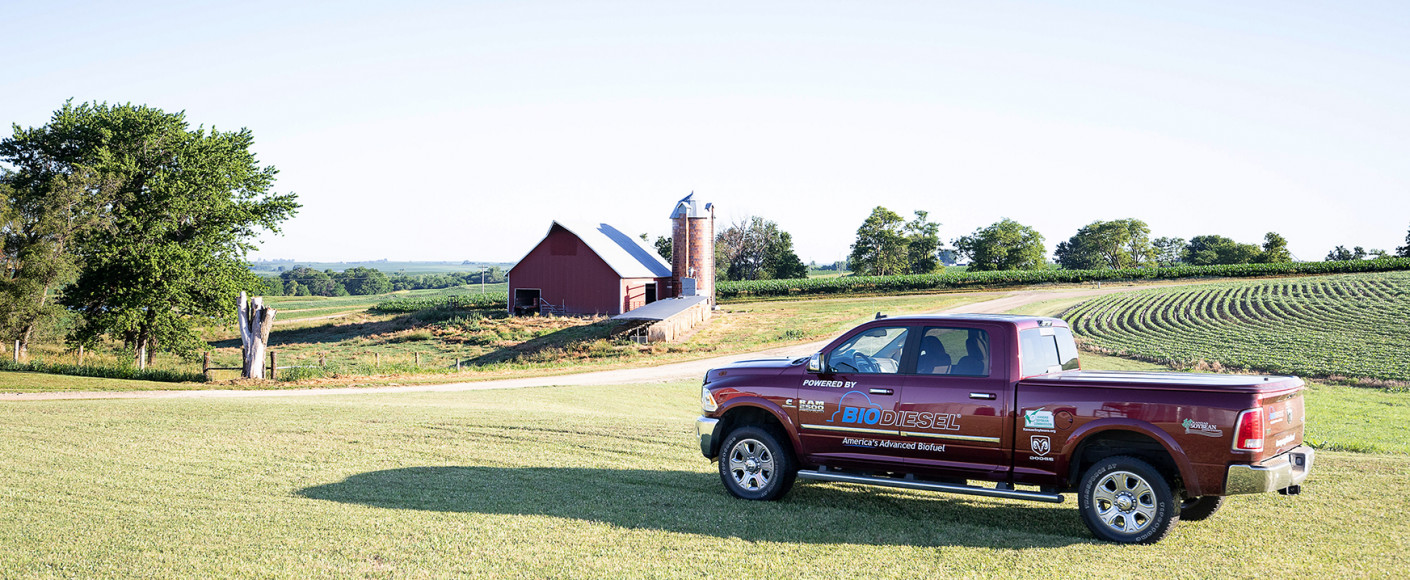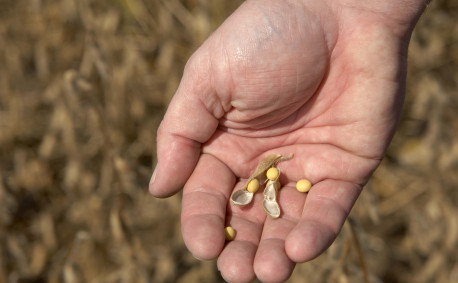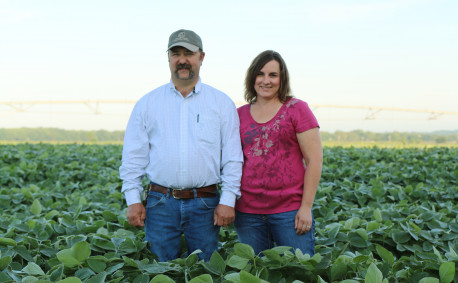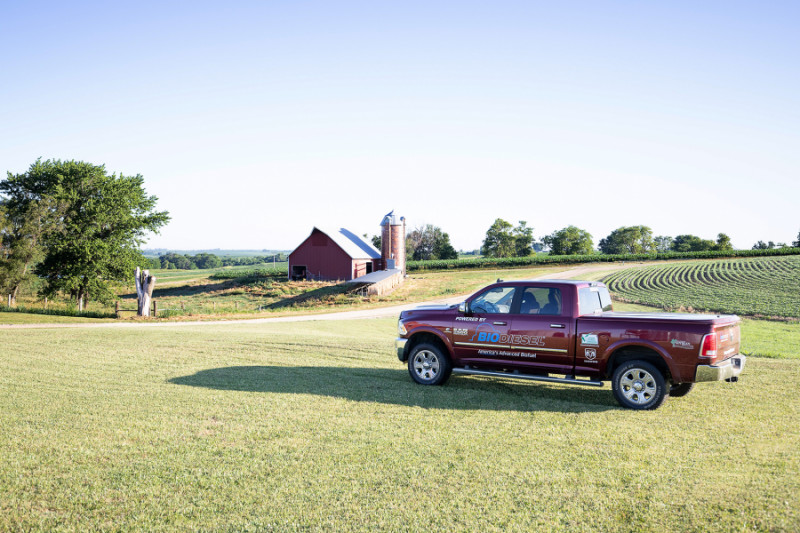Soybeans and Biodiesel
When you think of soybeans, what springs to mind? Edamame? Soymilk? Vegetable oil? What about diesel fuel? This versatile legume has a lot of tricks up its pod, including the capacity to become an advanced biofuel.
Soybeans are a major Kansas crop and their benefits are far reaching, thanks to the protein and oil in the beans. When soybeans are crushed during processing, they produce meal and vegetable oil. Meal is used in livestock feed and helps power animal agriculture. The oil, in additional to being a kitchen staple, is used to power diesel engines.
Through a chemical process, the oil is converted to two byproducts: biofuel and glycerin. (Fun fact: Glycerin is used in pharmaceuticals and cosmetics. There’s no end to what soybeans can do!)
The biodiesel is then blended with regular diesel to help increase efficiency and decrease emissions. Diesel engines can use blends with up to 20% biodiesel without modifications. It’s a bit like ethanol, which is produced from corn, sorghum and other plants and added to gas, except soybean-derived fuels are specific to diesel.
Biodiesel can be made from several different types of fats including canola oil, used cooking oil, and tallow. But soybean oil is the largest contributor to biodiesel production in the U.S. Kansas is a big part of that — Wichita is home to a biodiesel plant that produces 60 million gallons of biodiesel a year!
Why is biodiesel production important? As a renewable, clean-burning fuel, biodiesel is less harmful to the environment than traditional diesel fuels and gas. The benefits of biodiesel include:
- Made from renewable resources
- Lower greenhouse gas emissions by at least 50%
- Improved lubrication, which helps reduce wear on the engine
- Lower flashpoint, making it safer to handle and store
- Reduced food production waste
Better yet, biodiesel benefits farmers, too. Soybean farmers not only help produce biodiesel, but they can also fuel their farm equipment with it. Talk about a full circle!





